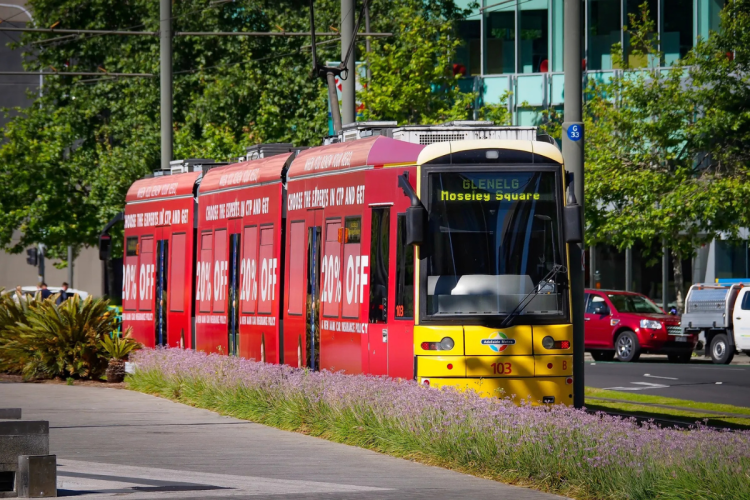In one big construction blitz, the city-to bay tram shutdown will see new overpasses built, stops updated and the creation of a more reliable network. Here’s what’s happening when.
If you’ve been wondering why Adelaide’s trams have stopped short at South Terrace, here’s the deal.
The state government’s partially pressed pause on the Glenelg line to finally fix its three worst intersections – and to rebuild the South Road tram overpass while they’re at it.
The closure also marks a reset moment, with the tram network back in public hands for the first time in years. It’s six months of disruption now for decades of faster, safer and more reliable commutes.
Let’s take a closer look at the changes.
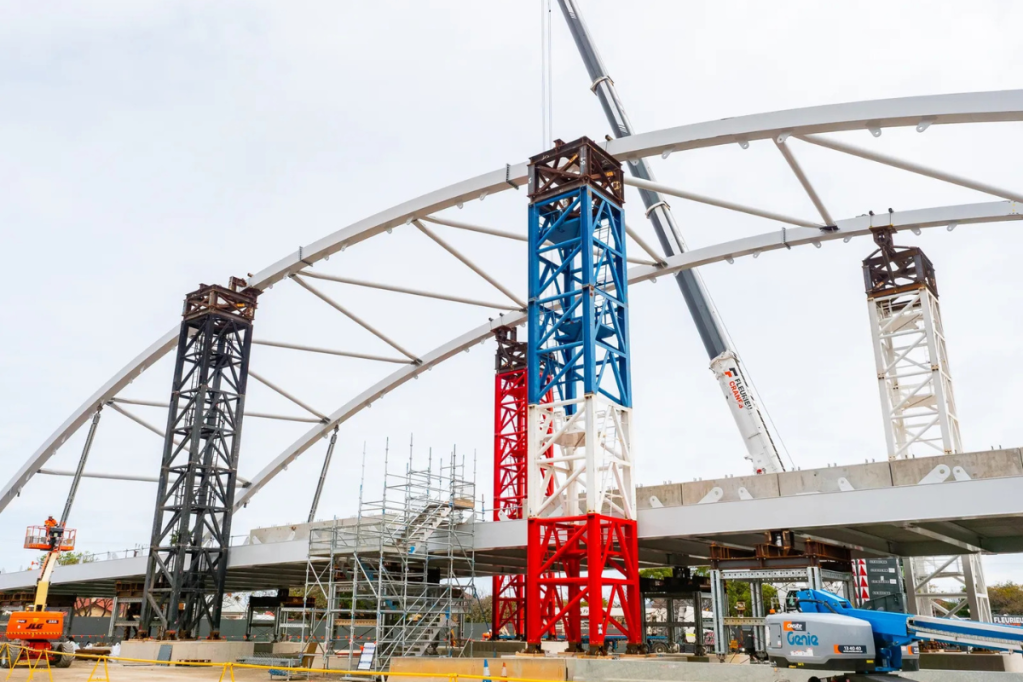
Why is the tram closed?
The Glenelg to city tram line is closed between South Terrace and Moseley Square from August 2025 until January 2026. That’s because crews are tackling the Tram Grade Separation Projects.
“Grade separation” sounds like something from an engineering textbook, but it’s simple: instead of trams crossing busy roads at the same level as cars, they’ll glide over the top on new overpasses. That means no more boom gates or traffic jams just because a tram’s passing through.
What’s happening where?
The closure is allowing four major upgrades to happen faster all at once:
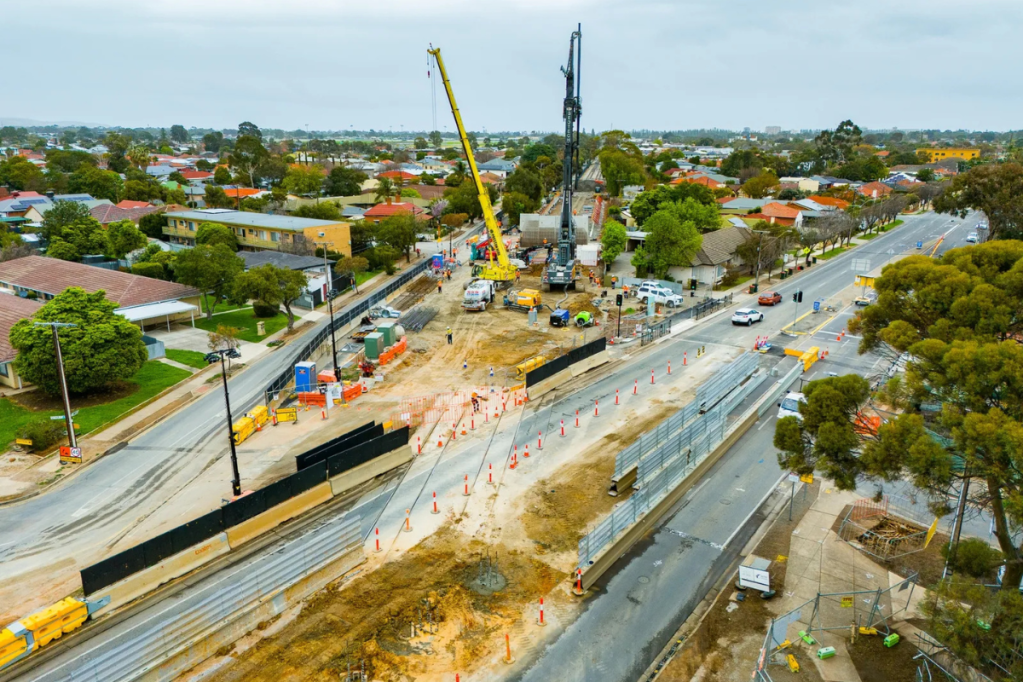
A new 700m tram overpass will take services above two of Adelaide’s busiest intersections. Underneath, there’ll be new community spaces with lighting and pathways. Tram Stop 10 will also return, now sitting on the bridge with lifts and stairs for easy access.
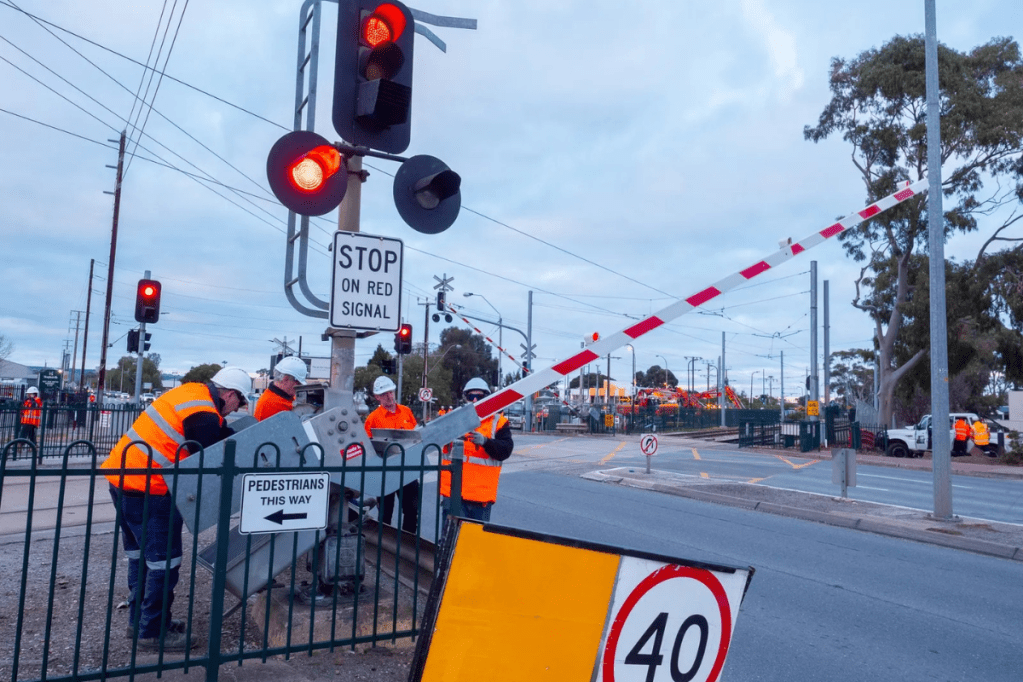
A brand-new overpass will replace the level crossing that used to stop traffic for up to 16 minutes an hour. Nearby tram stops are being reconfigured, and the Mike Turtur Bikeway will run across the bridge too.
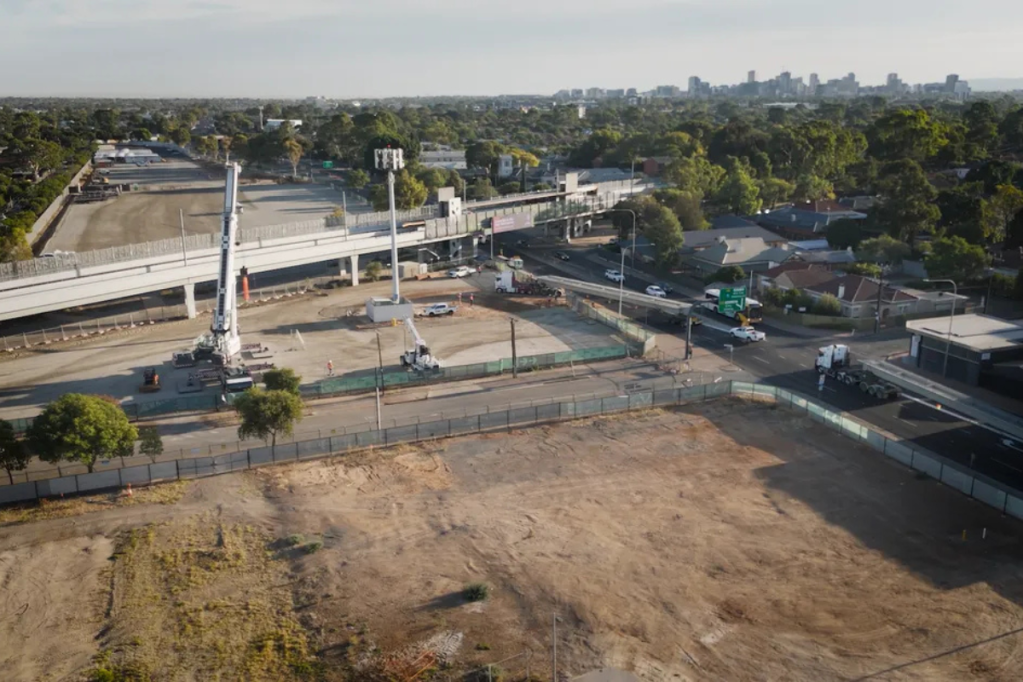
The former tram overpass is being rebuilt to make way for the future River Torrens to Darlington motorway. The new span is being installed during the closure to cut down disruption.
As part of these works, intersections at Marion, Cross and Morphett roads are being upgraded with better signals and lighting, new tram stops are being built to modern standards, and green spaces are being created under the bridges.
Why shut the whole line at once?
Think of it as ripping off the Band-Aid. Shutting the line for six months lets all three overpasses – plus the South Road rebuild – get done at the same time. If the tram stayed open, works would drag on for years, with rolling weekend closures and endless traffic chaos.
Instead, everything’s concentrated: major construction finishes late 2025, trams are back in January 2026, and the final landscaping and finishing touches roll out through mid-2026.
It’s also keeping more than a thousand South Australians in work during the construction blitz.
How will this make my commute better?
This is where it really pays off:
- Drivers: Marion and Cross roads are used by about 51,000 vehicles a day. Morphett Road? Another 25,600. Previously, boom gates were down for up to 20 minutes each hour at peak – a nightmare that saw impatient drivers divert into side streets and take risky chances. Once the overpasses are in, that problem disappears.
- Tram users: Expect faster, more reliable trips with less chance of being delayed by traffic snarls. Stops are also being modernised to make the service more accessible.
- Cyclists and pedestrians: The Mike Turtur Bikeway will sail over the new bridges, with safer crossings, regular rest areas, and even bike racks built in. No more dicing with traffic on Marion or Morphett roads.
- Everyone: Fewer delays, safer intersections and smoother connections between suburbs. Plus the community even gets new open spaces under the bridges to use once the works are done.
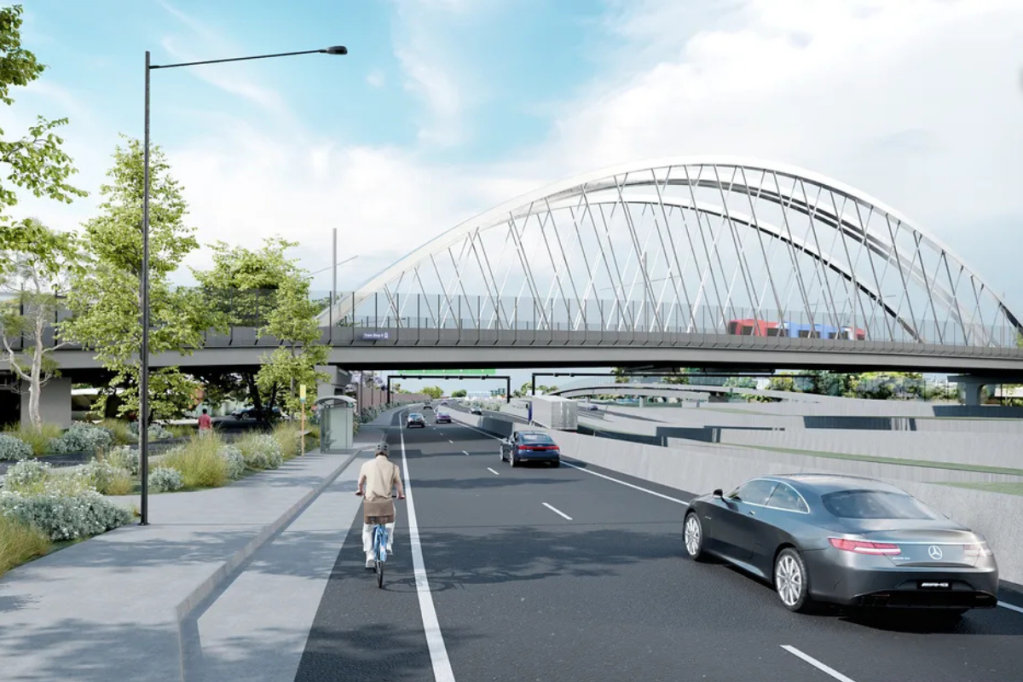
What does this mean for commuters?
For now, buses are replacing trams between South Terrace and Glenelg. They’re a mix of all-stop and express services, with extras during peak times and events.
Trams are still running as normal in the city’s free tram zone – between South Terrace and the Royal Adelaide Hospital, and between the Entertainment Centre and Botanic Gardens.
So if you’re hopping on and off around Rundle Mall, the Railway Station, city uni campuses, the Festival Centre or the hospital, nothing changes.
All the details can be found on the Adelaide Metro website.
On the roads, you’ll see reduced speed limits, detours and some temporary closures around Marion, Cross, Morphett and South roads.
Cyclists will find sections of the Mike Turtur Bikeway closed until early 2026, with detours clearly signed. Traffic controllers are in place to help, and routes have been designed with accessibility front-of-mind.
Remember it’s temporary – and the endgame is a tram and road system that works far better for everyone.
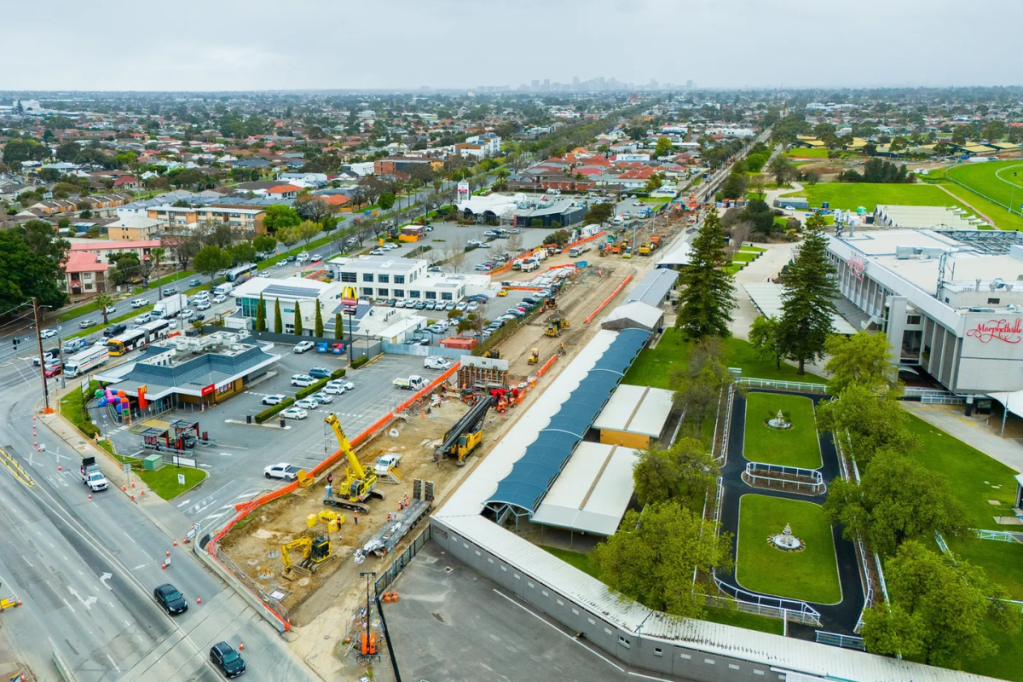
Are the tram stops changing?
A few stops are being shifted to fit the new bridges. At Morphett Road, Stop 12 is merging with the Morphettville Racecourse stop, about 200m east. Stop 13 (Glengowrie) is sliding 250m closer to Morphett Road.
At Marion Road, Stop 10 will return – but this time sitting on top of the new overpass, with lifts and stairs to reach it safely from both sides of the road.
What about the trees and wildlife?
Building new bridges means some vegetation has to make way – including 22 significant and 67 regulated trees across the project sites.
But the offsets are far bigger than the loss: more than 520 new trees and almost 40,000 shrubs and plants will be planted, boosting canopy cover by 20 per cent and creating shade and habitat along the corridor.
To help local wildlife thrive during the disruptions, the Community Wildlife Program is also stepping in. Students are building nest boxes for birds and possums, planting butterfly gardens, and setting up bee hotels to support pollination.
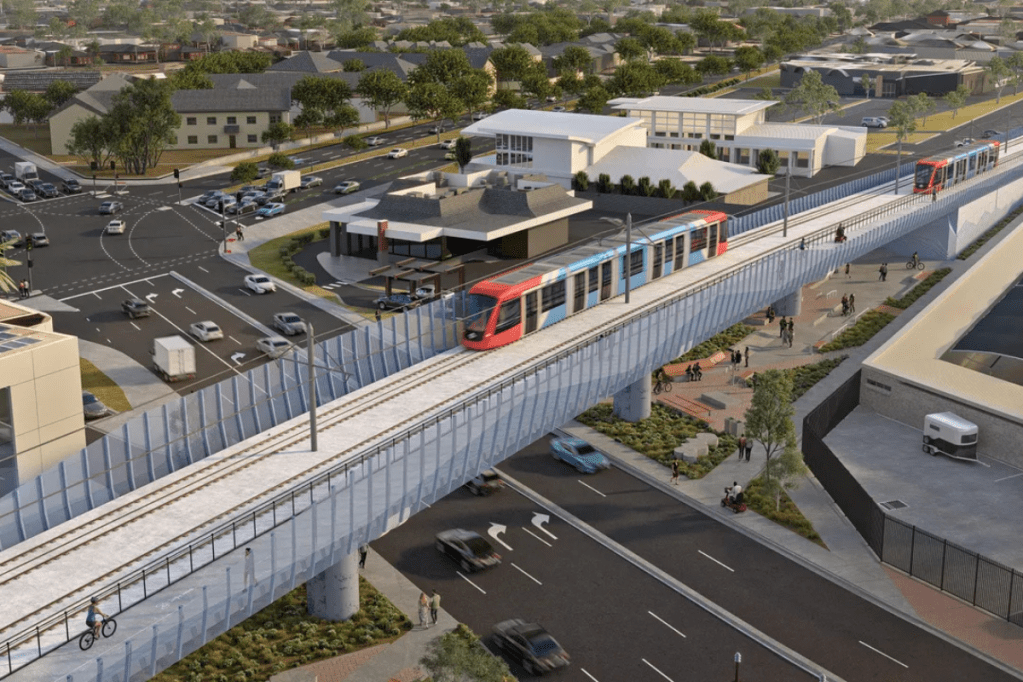
How are locals affected during construction?
If you live near the works, you’ll notice temporary changes. Maxwell Terrace near Morphett Road is closed until the project wraps up, and there are detours for cars around Marion, Cross and Morphett roads.
The project team is trying to keep noisy and dusty works to daylight hours, with barriers, sprays and sweepers to manage impacts. There are also night works at times, especially during September, but residents get advance notice.
Who’s paying?
The Australian and South Australian governments are splitting the bill 50:50. Together, they’re investing $870 million to remove the level crossings at Marion, Cross and Morphett roads.
The rebuild of the South Road tram overpass is part of the $15.4 billion River Torrens to Darlington (T2D) motorway project, which is also jointly funded by the state and federal governments.
What does public ownership mean?
The state government is bringing Adelaide’s tram network back into public ownership.
That means every dollar from operations goes straight back into running the network, as well as improving services, stops and reliability. It means better integration between trams and trains. And it means clearer accountability – a service run for the people, not for profit.
So when the trams return to their full route in January 2026, they’ll be part of a network that’s not only faster and safer, but publicly owned, better connected and built to last.
Want to know what’s changing near you? Check the project website for maps, updates and to sign up for alerts.


